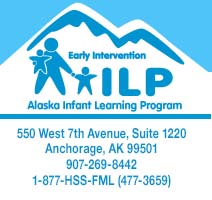
Safety Checklist: Birth - 5 Months
The types of injuries that occur in this age group are related mostly to the environment of the child. Since an infant starts with very limited mobility and then becomes a mobile child, many injuries occur when new developmental stages such as rolling, crawling, or walking begin.
Also, if a home is not child proofed, many children will sustain an injury due to unprotected household appliances, furniture, outlets, faucets, blinds, and many other common areas. It is important to get to the height level of the child and go around the house checking for any potentially dangerous areas.
Helpful hints for this age group include:
- All babies should be placed on their backs to sleep to prevent SIDS (Sudden Infant Death Syndrome);
- The crib should have a firm mattress, snuggly fitting in the crib without any choking or suffocating hazards such as pillows, stuffed animals, blankets or small toys in the crib;
- All homes should have working smoke detectors and fire extinguishers, and a fire escape plan for the family;
- The hot water heater of the house should be set to no higher than 120 degrees Fahrenheit (50.0 degrees Celsius) to prevent accidental scalding;
- Strings from blinds should be out of reach of the crib as these can be a choking hazard;
- No strings should be tied around pacifiers or toys;
- Babies should never be left unattended on a changing table or elevated area where they can roll off. Barriers such as toys or pillows will not prevent a baby from rolling off;
- Car seats should be used at all times and should be rear-facing in the back seat until the child is both over one year of age and over twenty pounds. Babies should never be left alone in the car and all adults should wear seatbelts. You can contact the Auto Safety Hotline at 1-888-327-4236;
- Cigarette smoking should be stopped when a baby is born. Smoking away from the baby is of little help since the smoke gets into clothing, skin, hair, furniture, carpets, drapes, car seats and so on. There is no excuse with today's knowledge of the hazards of smoking and the medicines, patches and inhalers available to help in the quitting process;
- Gun safety should be emphasized. If a gun is in the home it should be locked and stored away from the ammunition which should be also locked;
- If cloth diapers are used the safety pin should be carefully closed and locked in a closed position;
- Bathtubs can be slippery so a rubber mat or cloth should be placed on the bottom of the tub, and never leave a baby unattended in a bathtub;
- Gates should be used on all staircases;
- Baby walkers are dangerous. Not only can they flip over and harm the child they also inhibit a child's development for walking;
- Milk and milk products, corn syrup, Karo syrup and honey should all be avoided until at least one year of age as these foods can cause intestinal bleeding, allergic reactions or carry bacteria that inhibit breathing in infants;
- If you use a crib be sure the sides are always completely raised, the crib is not near a heater and the crib slats are no more than two and three eighths inches apart;
- Babies should not ride on an adult bicycle even if placed in an infant seat;
- Avoid direct sunlight as babies can sunburn very easily. If there will be exposure to direct sunlight, use at least 15 SPF sunscreen.
- Check all toys for loose parts, splinters, and sharp edges:
- Cover electric sockets and keep your baby away from hot pipes, stoves, radiators, and fireplaces;
- Keep all medicines and poisons such as household cleaning products, soaps, insecticides, and solvents out of reach;
- Playpens can be used after three months of age but children should not be left there for long periods of time;
- Any hot liquids or cigarettes (which you hopefully quit when the baby was born) should not be taken while holding baby since babies start to reach and grab at three to four months of age;
- Since four month olds may roll, extra caution should be taken to be sure that the children at this age cannot roll onto something harmful such as a sharp object on the ground;
- Children may place objects in their mouth so choking is a major concern. Avoid all objects small enough to be put in a child's mouth;
- Since infants grab for objects, adults should be careful with all hot drinks, breakable objects and of course, cigarettes should have been discontinued before birth;
- Insect sprays with up to 10% DEET can be used. In areas of the country where ticks are prevalent the infant should be checked for tick attachments on the body;
- Since infants are grabbing by 4 months of age, contact with pets should be closely monitored;
- All baby sitters should be at least 13 years of age, mature enough to handle emergencies, and known and trusted by the parents;
- All pools or hot tubs should have fences on all four sides;
- Install only garage door openers with sensors so they will not close on a child;
- Learn Cardio Pulmonary Resuscitation (CPR). Call the American Heart Association at 1-800-242-8721 for information;
- All of these safety precautions should be present in any home, daycare, preschool, mother's day out, friend or family location.
